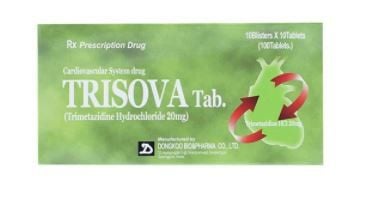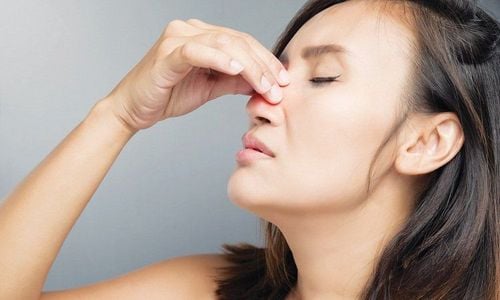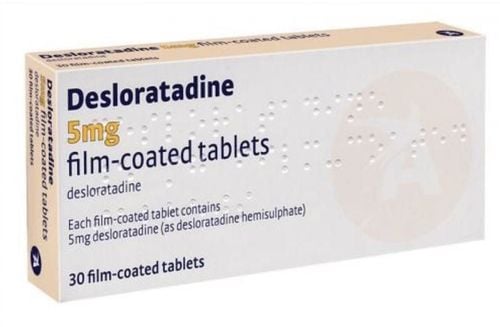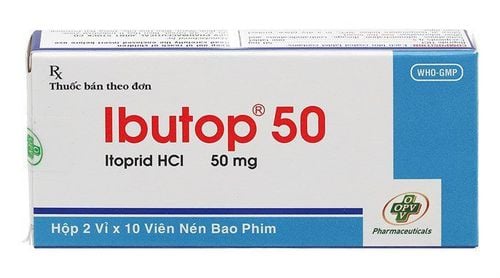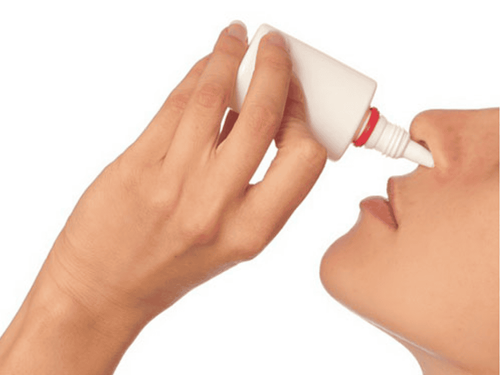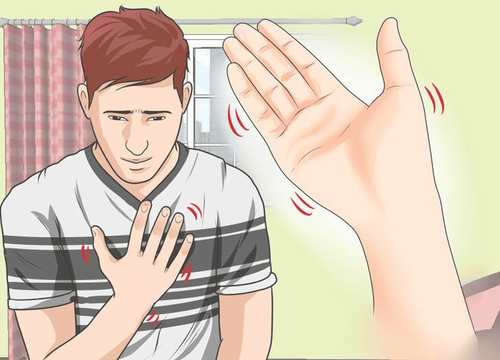This is an automatically translated article.
Pollezin is one of the drugs used to treat allergic rhinitis and chronic urticaria. So what exactly does Pollezin do, what should be noted when using it to limit unwanted side effects?1. What does Pollezin do?
Pollezin belongs to the group of antiallergic drugs, antihistamines, with the main ingredient being levocetirizine dihydrochloride with the content of 5mg. Pollezin is used in the treatment of allergic rhinitis and chronic urticaria to relieve symptoms such as itchy nose, sneezing, runny nose, watery eyes, urticaria.Pollezin is prepared in the form of film-coated tablets. The drug is contraindicated in children under 6 years of age and in patients with severe renal impairment (creatinine clearance <10ml/min) who are allergic to any of the ingredients.
2. Usage and dosage of the drug Pollezin
Pollezin is only used for children from 6 years of age and older and adults with a dose of 5mg / day (ie 1 tablet / day). In patients with hepatic impairment or with both hepatic and renal impairment, the dose should be reduced depending on the severity of the renal disease. Patients with hepatic impairment take the usual dose.Depending on the symptoms and type of allergy, the treatment time can be less than 1 week but can also last from 3 to 6 weeks. Note, avoid using Pollezin overdose or abuse the drug because it can cause drowsiness in adults and agitation in children.
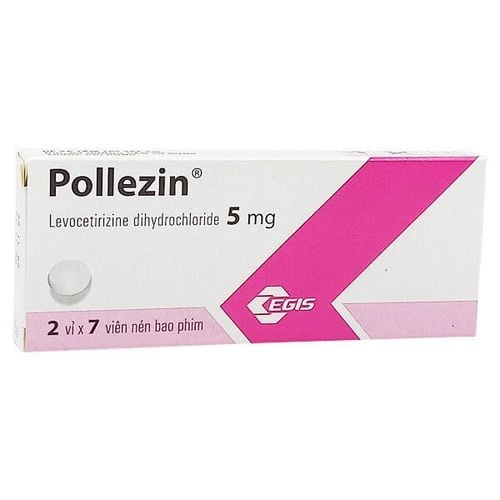
Thuốc pollezin có thành phần chính là levocetirizine dihydrochloride
3. Pollezin side effects
Pollezin may cause some common side effects such as headache, drowsiness, somnolence, fatigue, dry mouth. Less common side effects include abdominal pain, body exhaustion.In addition, some other manifestations of Pollezin drug that have not been recorded with specific frequency include:
Insomnia, dizziness, increased appetite, weight gain, abnormal feeling on the skin. Ease of excitability, convulsions, visual disturbances, hallucinations, depression. Taste changes, nausea, vomiting, tremors, heart palpitations, fainting. Itching, skin rash, difficulty breathing, palpitations, muscle pain, joint pain, difficulty urinating or painful urination. Abnormal liver function test results, inability to urinate, edema. Some cases of hypersensitivity to the ingredients of Pollezin medicine can cause serious allergic reactions such as difficulty breathing, swelling of the mouth, tongue, throat, face, urticaria, low blood pressure, and heart failure. At that time, the patient needs to stop taking the drug immediately.
4. Notes when using the drug Pollezin
The drug can interact with Theophylline, Titinavir, alcohol or other central nervous system depressants, reducing Cetirizine clearance, changing pharmacokinetics, reducing alertness, distracting at work. Therefore, it is necessary to inform the doctor about the medicines you are using (including prescription and non-prescription drugs, dietary supplements and herbs). Breastfeeding women should be cautious because Pollezin can be excreted in breast milk. Pregnant women are only allowed to use it when necessary or prescribed by a doctor because the safety of the drug for the fetus is not guaranteed. Patients with prostate enlargement, spinal cord injury need to be careful while using it because it can cause urinary retention. Do not use this medicine in people with galactose intolerance. Pollezin is used to relieve symptoms of allergic rhinitis and chronic idiopathic urticaria such as itchy nose, runny nose, sneezing, watery eyes, ...
Please dial HOTLINE for more information or register for an appointment HERE. Download MyVinmec app to make appointments faster and to manage your bookings easily.




